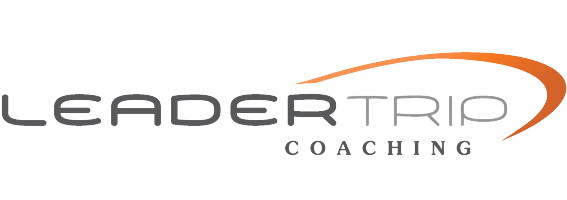Teams exist to produce results! But even with the best people on your team, it is not always easy to collaborate and meet the high expectations of your key stakeholders. The obstacles are manifold, and they are very much depending on the specific circumstances. Some teams are just not aligned on their priorities and clear about each other’s roles and responsibilities. Other teams come together and fail to engage in a constructive discussion leading to a proper decision. Then there are those teams with individual members staying distant from one another, not wanting to ask for help or providing it.
This cannot be a total surprise. Teams start working together with little time to get to know each other. Their discussion in meetings is rather about what needs to be done than how it can be done together. Over time each team develops a unique way of doing things, often unconsciously. How a team does something, it does everything. Unproductive behaviors can become part of the team’s interaction, they lead to controversy and uncontrolled emotions with negative consequences for the overall performance of the team.
In times when teams work increasingly from home and meet virtually, it is even harder to maintain personal relationships among colleagues and create a cohesive team driven to achieve the common goal.
TEAM COACHING IS HOLISTIC
As soon as problems have been identified we tend to solve them on an individual level. Professional development opportunities are given in the form of training, coaching, mentoring or 1-on-1 reviews with the line manager. These are all great interventions and they certainly help to raise the performance of the individual and consequentially of the team overall. However, there is little done with entire teams, supporting them to achieve high standards of teamwork.
Think about teams in sports. Basketball players practice individually their jumping, shooting, dribbling and improve their speed and stamina. But no matter how good they get; they need to do more to win games. It is essential that they come together with their teammates and develop their passing, spacing, transitioning from offense to defense and vice versa. This is how they make the whole greater than the sum of the parts. Team Coaching is designed to do exactly that for business teams.
TEAM COACHING IS CONSISTENT
Team coaching is more than a team-building event. No doubt, it is bonding when we go with our colleagues on a scavenger hunt, climb a high rope course or jointly master the challenges of an escape room. Those activities create shared memories, they foster trust and camaraderie in a team. The effects are just difficult to sustain if there is no proper follow-up or a joint learning experience associated with it.
Team coaching on the contrary applies a methodology that supports change over time. Similar activities as they are used in team building events are systematically integrated, also when teams work with their coach purely in the virtual world. Teams are living systems; they follow unwritten rules and behave in certain ways. Even if those behaviors are not productive, teams tend to resist change. Team coaching unveils the characteristics of the team to itself; it initiates practical actions to improve the collective performance, it allows the team to learn from new practices and creates new standards. Team coaching holds the team responsible for the change.
TEAM COACHING IS FACT-BASED
A solid team coaching engagement starts with an assessment. This is not a rating of the team by the leader and not an evaluation of individual personalities or contributions. It is an anonymous self-assessment of the team. It creates a picture of how the team members collectively see themselves. In the methodology of Team Coaching International, the responses to an online questionnaire are turned into scores for 7 team competencies in each of two distinct dimensions, productivity, and positivity.
Generally, competencies in productivity are needed to get the job done, like decision making or accountability, competencies in positivity are essential to get the job done together, e.g. trust and communication. When a team sees the results of its own assessment for the first time often the question is raised “Why is the score for competency X so low ?” The simple answer: “You tell me, these are your ratings. If the score is low, you all must have seen a problem.” This is when the team faces its own reality.
TEAM COACHING IS SELF-DRIVEN
A team coach does not tell the team what to do or how to do things differently. A team coach facilitates the process and supports the team to find the answers among themselves. When the team reviews the results of the self-assessment, the coach challenges them to identify those areas of improvement that are most relevant for them. Different perspectives are brought into a vital conversation to conclude on a direction to take. The discussion emerges naturally in a list of actions for improvement. With everyone’s full commitment, the team takes control of their own destiny!
The coach empowers the team to make the identified changes. (S)he pays attention to everything the team does and doesn’t do. The coach intervenes to keep the team on course, for instance by playing important incidents back to the team. It opens the opportunity to pause and reflect on what happened in that very moment, and to learn from it. It is the role of the coach to observe and highlight progress made by the team and at the same time to reinforce co-responsibility and accountability.
TEAM COACHING IS REAL
Coaching engagements last a couple of months. In the regular session with their coach, the team can critically review their latest experience of working together in the day-to-day business. They further clarify how great collaboration looks like for them. Adjustments are made to the jointly defined standards if necessary. Important insights and concerns generate updates to the action-list for the team.
In their ongoing sessions, the coach spends a significant amount of time on real business topics. Those discussions with the team are perfect opportunities to work on whatever is on the list for improvement, e.g. common goals, alignment, and handling of conflicts. This is a safe environment for everybody to practice productive team behaviors. The coach can pick up on any aspect of the team dynamics being at play and provide feedback. Very similar to what a basketball coach does when working with a team.
TEAM COACHING IS MEASURABLE
At the end of the coaching engagement, the assessment is redeployed. Team members responsible for the second time to the online questionnaire. It allows to measurably see the progress the team made on each of the competencies from the initial assessment. These are numbers that the team can take back to the organization to demonstrate the value of the joint work they have done. And there is more!
Coaching projects are launched to deliver against specific, tangible business goals, such as increased employee engagement, reduced costs per unit, or improved service quality. The respective KPI’s are monitored and reviewed during the ongoing coaching sessions to ensure that the improvements of the team competencies are tied directly to better business outcomes. Those will ultimately determine the value team coaching gives to an organization.
CONCLUSION
Team coaching empowers us to achieve extraordinary results. It is a development opportunity also for your team. Check it out!








